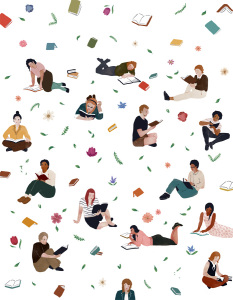“Free”

I write for free or for fees we call nominal. Not as a matter of principle. Certainly not in pursuit of an ideal.
I write for free because the economic structure of my country dictates the necessity of this arrangement and institutions (of education, of publication), their agents being people much like myself, admit no alternative.
At first I wrote for free because I believed that “getting my name out there” was a worthwhile use of my time, that one day I would publish novels and essays, and that one day I would teach more than the 175 students a year who pay for my time. I believed that I would teach the world through the miraculous and durable medium of the printed word.
Now the fact that 175 students pay for my time itself seems amazing and I wonder how long that can last. I no longer work to make my name known. Let it suffice that I know my own name and that I sign it to contracts and checks. That I stay afloat financially as a teacher and let dreams of literary stardom twinkle in the firmament, not vanished, but respected as all distant bodies should be respected. Let me be clear: I do not wish to suggest that my failure as a writer necessarily impugns the success of others. I do wish to suggest that my insight into craft has been shaped by my insight into finance.
I wrote for free because I believed I had something to say and that giving it away and selling it were alike enough. I wrote for free because my privilege blinded me to the consequences of my choices, both for myself and for other writers.
I write for free because periodically institutions ask if I have done anything and if I reply “No,” waves of apprehension and doubt descend. The colors that have defined me grow pale. The gums and glues that have secured me (financially, philosophically) to a larger group and purpose threaten to loosen. One year I neglected to mention that a blog post I had written had been linked by a New York Times online editor to its website, and somehow one of the errors of my writing life became my failure to capitalize on the moment that a celebrity institution valued me. Later, I found the whole thing laughable, the blog post and the link having evanesced as electronic media frequently do.
In Ways of Seeing, a consideration of contemporary aesthetics and culture, John Berger writes, “Hack work is not the result of either clumsiness or provincialism; it is the result of the market making more insistent demands than the art.” From the vantage point of an academic career more than half over, I see the insistent indirect demands more clearly. Certainly pricing a symbolic object , the value of which was once ritual and nonnegotiable, reflects a changed culture. It may turn out that this pricing process affects the value of all symbolic objects, be they stories about German teachers, essays about sauerkraut, or tone poems inspired by Rothko and Barthes or Lennon and McCartney, analogically or electronically delivered.
That I seized upon Berger’s sentiment and made it an epigraph to a collection of poetry I wrote at the age of twenty-two (some twenty-five years ago) seems significant. My young self felt a tug, a foreboding that it could make no sense of, but that it left snagged in the corpus of my life’s work, for me to reread and reconsider. This message in a bottle is an expression of the power of literature, the way a sentence encountered in one decade gathers force and power. I see that dynamic clearly today and will perhaps understand it differently again in twenty years. To touch a word with one’s mind is to acknowledge oneness with the whole puzzle.
In 2014, Ursula Le Guin explained to a rapt audience that writers had become victims of capitalism, much of their work diluted and lost in the frantic pursuit of profit. “But the name of our beautiful reward is not profit,” she declared. “Its name is freedom.”
As I go through my teaching life, pondering the relationship between the words “less” and “fewer” and watching the word “fewer” die, I find myself both seeing the wisdom of Le Guin’s passionate assertion and being offended by it. Should I teach the word “fewer” to students today in the same way that I regale them with stories of the great auk and the gold standard? Why should I wait for a national council of teachers or an association of journalists to tell me to abandon this word that has served the culture for millennia? Or should I recognize that the word “fewer” supplanted a perhaps gentler and franker term, making its own certain demise fair enough? How do I help them understand what processes we should accept as inevitable and those we should oppose, when I have no idea myself?
I write for free. I write freely. I persist in believing that my power to oppose injustice lies partly in my ability to express ideas clearly and beautifully. Somewhere between freedom and profit there may be a stable place to stand, but I have not found it yet.
Recommended
Nor’easter
Post-Op Appointment With My Father
Cedar Valley Youth Poet Laureate | Fall 2024 Workshop





